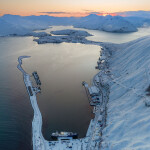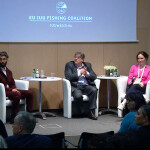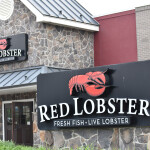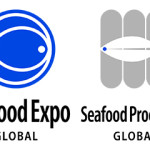Canadian media have broken news of an unreported and overlooked September prosecution against Clearwater Seafoods Inc., Clearwater Seafood Limited Partnership and CS ManPar Inc. for “a gross violation” of section 115.2 of the Atlantic Fisheries Regulations, which requires pulling lobster pots within 72 hours.
CS ManPar plead guilty and charges against the other two companies were dropped.
Clearwater, via CS ManPar, was convicted of repeatedly storing 3,800 lobster traps on the ocean floor more than the limit of 72 hours - on occasions leaving traps for 17 and 31 days, and in another instance in 2017 up to two months. The offenses took place in Lobster Fishing Area 41, which is a unique territory exclusively licensed to Clearwater. Area 41 runs 80 kilometers from the shore out to the 200-mile limit from Georges Bank to the Laurentian Channel.
Not only has Clearwater exclusive right to fish the area, it can fish it year-round. This is a season-less fishery with an annual license for 720 tons of lobster, representing about 15 percent of Clearwater’s annual lobster sales.
The Department of Fisheries and Oceans told the CBC the practice poses “a serious conservation risk” because even unbaited traps stored on the ocean floor can continue to unintentionally catch lobster and other species, in effect becoming a type of ghost fishery.
The conviction comes during Clearwater’s efforts to change the same regulation it violated.
The practice also comes at a time when Canadian fisheries have extra-ordinary regulations in effect to prevent entanglement of endangered North American right whales in fishing gear.
“This fishery has always had a unique set of rules. No on else is allowed to fish like this or do this. We hear people stretch the 72-hour rule, especially to allow for weather, but DFO do book people for it and they do it quite a bit,” Shannon Arnold, the marine program senior coordinator with Halifax’s Ecology Action Centre, told SeafoodSource. “We view this as a BIG violation.”
The EAC said the violation is compounded by the fact that “the advisory committee for this fishery consists of Clearwater and DFO.”
In 2015, Arnold submitted a freedom of information request to see the fishery plan for this area.
“[It's] a public document, which wasn’t available on-line. We eventually saw that there was a written exemption for the 72-hour rule,” Arnold said. “We chased if for a year-and-a-half. Later, on a note on the bottom of the webpage about when it was last edited – September 2016, said it was 'edited to clarify DFO’s intention.'"
Arnold says more questions were raised about trap storage when the Randell Dominaux, which is the only offshore ship servicing this fishery, spent the fall of 2017 either tied up or engaged in scientific scallop research for the University of Maine.
“We've been trying to track down details on how this fishery operates because our analysis led us to question whether it was possible for Clearwater’s one offshore boat to fish upwards of 6,500 traps within the law,” Arnold said. “We know now that Clearwater were ‘storing’ thousands of traps on the bottom instead of bringing them to shore, and using thousands more baited traps to fish unattended for weeks and months at a time.”
Court testimony said that, in 2016, DFO twice warned Clearwater senior management to stop the long-standing practice of storing traps at sea. DFO used a PowerPoint presentation and a follow-up letter to issue its warnings. The DFO PowerPoint highlighted a 2014 example when Clearwater stored 8,500 traps on the ocean floor for 68 days. Also in 2014, DFO boarded the Randell Dominaux and found “a significant marine resource loss directly linked to the fishing practice.”
Reports of the testimony say one trap trawl left to “soak” for 13 days contained 128 dead lobsters, 53 weak and bitten lobsters, 60 claws and 18 groundfish. Another un-baited trawl contained 15,000 pounds of lobster. There were other instances of traps left untended for 15 to 98 days.
"The difficulty we have experienced in getting a full picture of how this fishery works has highlighted the distressing lack of transparency in our fishery management system," Arnold said. "This is especially true where fisheries are consolidated, like this case - basic fishery information and science being carried out by this company is protected in the name of 'proprietary information.'"
DFO have granted Clearwater scientific licenses to study “soak” time. The EAC’s concern is that this proprietary information is not peer-reviewed and may end up being used to inform regulations.
In a summary of the case and its concerns, the EAC raised questions about the Clearwater’s 'sustainable' certification and the potential risk to Canada's marine environment.
SeafoodSource had not received a response from Clearwater as of Friday, 11 January.






